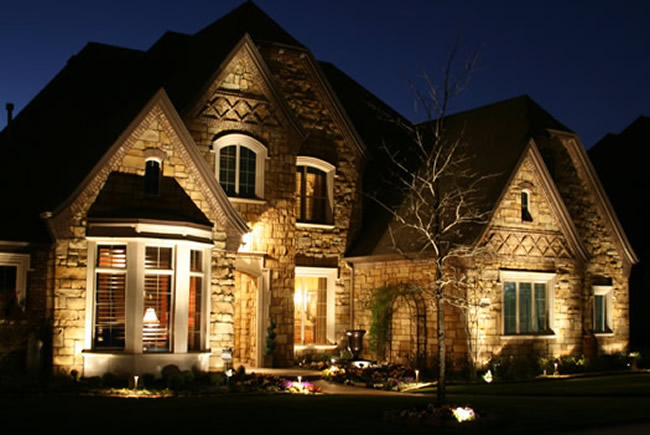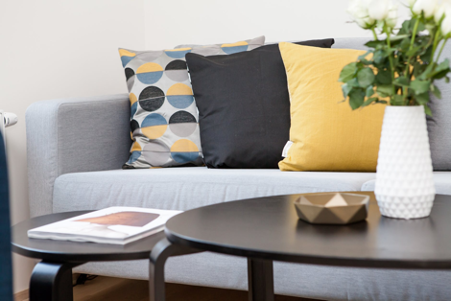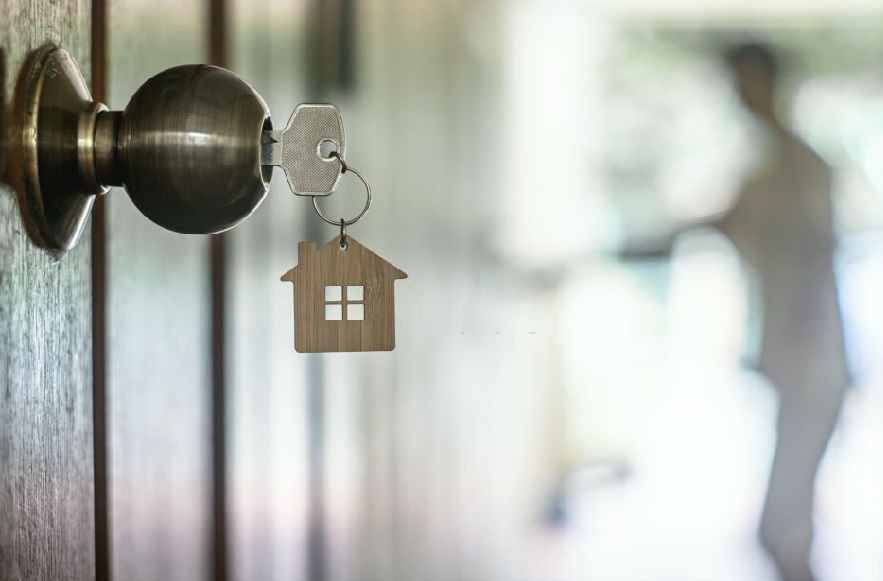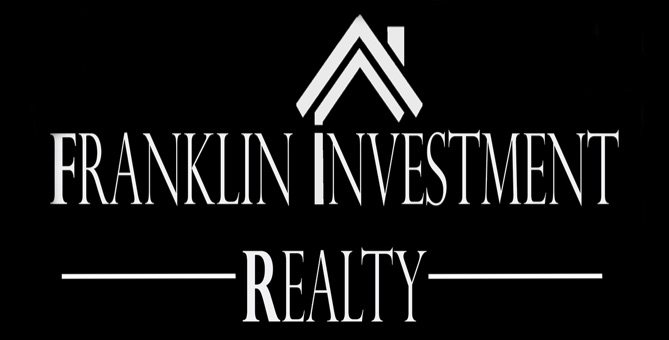5 Tips to Keep in Mind When Home Buying Amid Rumors of a Crash

Pandemic trends led to a high-demand real estate market, with a new wave of remote workers buying in more affordable rural areas, and driving prices up. With inflation on the rise in general, and many housing markets remaining hot through a predicted downturn, it may seem a risky time to buy a home, or to invest in a new property. Despite signs of real estate being overpriced, the growing number of first-time buyers and investors are keeping the real estate market growing, even while slowing. There are plenty of deals to be had, but no one wants to get stuck paying too much for something that doesn’t keep its value. Homes, and property, as a general rule, are good investments, but as we learned in 2008, investors can tip the scales enough to bring a crash. While it’s true we’re in new territory, and one would expect a “correction” in markets where prices continue to rise beyond what local median incomes can support, the comparisons to the 2007-2008 housing market crash and the Great Recession are stirring unfounded anxieties. Consider these tips for navigating the homebuying process. Tread Carefully with Foreclosures Buying a foreclosed home could be one option to save money on your investment. But it’s crucial to understand what you’re getting into with an as-is property deal. For example, though you may be able to waive an inspection (especially if you’re buying cash), it’s not always a good idea. A home inspection can reveal issues that you would otherwise be oblivious to – leading your new property to become a money pit in no time. Hiring an inspector ensures that you find out about leaky plumbing, out-of-date HVAC systems, and roof issues long before signing over your cash. Make Essential Improvements First Treating mold and other hazards is a solid first step, and a good deep cleaning is often in order. You may also consider low-maintenance landscaping to increase your (or your tenants’) enjoyment of the home and yard. After all, the less time spent working, the more time you’ll have for relaxation. Cleaning the windows, because it’s often neglected by even the most fastidious homeowners, can make a real difference in the presentation of the home. The rooms are slightly brighter, the views more crisp. Cleanliness can have an overwhelmingly positive effect on our response to new surroundings. Thankfully, you can comparison-shop for the best window washers near me. Verify Potential Purchases Ahead of Time When buying a home while there’s looming uncertainty, there’s always a possibility that legal issues will crop up. Foreclosures are particularly susceptible to both structural and legal problems. But it’s smart to check out the property’s title status before making an offer – or at least before locking in a contract. As Rocket Lawyer explains, in most areas, you can perform a free property title search through the county assessor. It could take some digging. But confirming that the title is in good shape is a must when you’re investing in a potentially awful investment. Have Cash In Hand If you’re looking for a rental property to invest in, you may have funds available for an outright purchase. But if you’re a first-time homebuyer or are taking out a conventional loan, low rates aren’t the only thing to know about in a recession. Because many real estate markets are becoming increasingly competitive, prospective homeowners can expect to play hardball when it comes to making an offer. That might mean asking for seller concessions or closing cost support is a no-go. You’ll also need cash for your down payment and incidentals, whether you’re going with a conventional loan or an alternative with lower up-front costs. Conventional loans require a 3 percent down payment minimum, and they are available at fixed or adjustable rates. By paying more up-front, a homebuyer is proving to the seller that they can afford any unexpected costs during escrow. To be the most appealing to sellers, waving around a bit of cash can’t hurt. Plus, if your down payment is 20 percent or more of the loan amount, you could skip private mortgage insurance (PMI) – a significant savings over the lifetime of the loan. Keep an Open Mind Because talk around the real estate markets and anxiety over a repeat of the housing crash and great recession, the perception of a volatile market, of an impending crash, or even of a slowing market could affect the prices of individual homes. Another look at a fixer property in a good neighborhood could be worth your time. Similarly, comparing financing options or offering more cash at closing could boost your appeal to sellers. The predictions are in and despite similarities to the last housing crash, most housing markets will only slow slightly and the demand for housing will continue to drive home prices up. The current forecasts predict that buying today is still a good investment over the long haul. Buying or selling in the greater Philadelphia area? Make sure to work with a skilled agent from Franklin Investment Realty! Contact them today! – Shirley Martin
How the Right Kind of Lighting Can Transform Your Home

The right lighting can totally change the aesthetics of any room. In fact, the right kind can liven up a room, making it exciting and extremely eye-pleasing. It is important that you use reliable and good-quality electrical wires and cables while installing the lights. Let us learn more about lighting and how it can change the appearance of any room. Key Lighting Design Factors Area and size of the room Your preferences Height and shape of the ceiling Color of the walls, furniture and accessories Shadows and reflections in the room Daylight integrations Energy efficiency Level of illumination (lux) Electrical codes, documentation, and specifications 3 Types of Lighting General or Ambient Lighting This type of lighting is simply used to make an interior space visible. Ambient lighting is soft and allows you to function without a harsh glare. Use the right type of home wiring while installing these lights. Task Lighting Task lighting is concentrated, smaller lighting. It is meant to help you see clearly when you do activities like reading or sewing. It works well only when it is used as a contrasting light. Accent Lighting The primary objection of accent lighting is to draw the eye to its focal point. You can use it to add style and even drama to a room. Ensure house wiring is of high quality while installing these lights. How to Light Different Rooms of a House Entryways The entryways should be well-lit. One of the best lighting options for entryways is ceiling fixtures. Avoid downlights as they can create high contrast shadows. You can also use track lighting if you want to create a wall wash. Make sure the electrical cables are not visible when you fix the lights in the entryway. Stairs and Hallways There should be enough lighting in stairs and hallways to provide a safe passage for those using them. Install a light fixture every 4 – 6 feet. If you use the right type of lighting, you can make the area seem more spacious. You can use different light sources like wash lights or wall fixtures. Utility Rooms and Garages In these areas, you need plenty of ambient and recessed lighting. Utility rooms like the laundry area would require task lighting. Do not place the lights directly over the vehicles in the garage. Installing moisture-proof fluorescent lighting would be ideal. Go over the house electrical wiring to determine which would be the best spots to install lights. Living Rooms A living room is where you spend most of your waking hours. This is where you would gather with your family, host guests, watch television, read, or work. Multiple light layers, along with dimmable lights would look great. You can also use a combination of accent lighting and ambient lighting. Kitchens This is undoubtedly one of the most functional areas of the house. You don’t just cook in the kitchen, but also eat, hang out or even work. This means you need plenty of ambient light along with task lighting in the kitchen. Under-cabinet lighting can provide task lighting for the counters. Consider using energy-efficient lighting since you would use this space a lot. Dining Room Install beautiful light fixtures like chandeliers or pendant lighting above the dining table. You can also use track lighting and dimmers to create a more relaxed or romantic ambience. If you want to use recessed lighting, then aim the light toward the walls as it will create ambient light. Ensure that the home electrical wiring supports the installation of these lights. Bedroom Bedrooms should be relaxing and help you wind down after a long and tiring day. Moreover, the lighting should help you fall asleep. Ambient lighting, along with dimmer controls, will help you achieve that. Accent lighting will give the room a more decorative look. Don’t install any light directly above the bed. Bathrooms Bathrooms are all about function, safety, and aesthetics. You must have bright, even light that is shadow-free. Use recessed lighting as it would help free up space and offer a glare-free look. Choose a neutral light that is directed toward your face when you look at the mirror. To Conclude Remember that you must pay attention to the home electrical wiring system when you install the lights of your choice. Choose the right type of lighting, and you will see your home transform into a relaxing, comfortable and stunning place. – Jesson Pitt
Top Features to Look for in a New Home

Your home is your space away from the world, where you can slip away and recharge or relax while connecting with loved ones. It needs to be more than just a few walls and simple rooms. These are the top features everyone should be looking for in their new homes: and why they matter! Fantastic Siding That Will Last Your siding needs to be as strong as possible to protect your home. Although aesthetics matter, deciding what color people refer to your home as and deciding their first impression of your property, it’s also vital for it to be able to handle storms, moisture, and wind. Look for a property with a strong board and batten siding that’s recently been installed. Although you can simply replace the siding with something that matches your tastes if you go for a home with older siding, it’s not necessarily the best call since that can be expensive for a new home buyer. A Roof You Can Trust How old is the roof of the homes you’re looking at? Anything older than 20 years old will probably give you trouble within the next decade or two, causing you to have to put tens of thousands of dollars into replacing it. Instead, seek out a property with composite roofing that’s recently been replaced. Composite roofing, also known as synthetic shingles, is made out of recycled materials and allows you to get the look of slate or cedar shake: while also being ecologically sound. These roofs can last beyond fifty years if completed by the right company and are a good choice for almost anyone. Energy Efficient Details Energy bills are skyrocketing, so many buyers are making the smart choice of seeking out properties that are made to be more efficient. You can see these details throughout the home if you know what to look for. Properties with energy-efficient soffit panels that are well insulated and that have updated HVAC systems often deal with far smaller energy bills than their counterparts. A Feeling of Security and Safety You should feel secure and safe within your home. The best way to ensure you do is to look at the crime rates of the area you’re moving to and look at the details of the home that point towards it being a safer property. Are the windows newer, with good locks on them that you can switch whenever you close them? Are the doors good quality? You should also consider looking for exterior lighting for your lawn. This will not only help you show off your beautiful property at night, but it will stop people from trying to trespass at night since they’ll be easily spotted in the exterior lighting. Gorgeous Details: Even in the Garage Every inch of your new home should have details that show it was thoughtfully constructed and updated. A major point that gets overlooked is the garage! A new garage door ensures you won’t have to struggle with replacing it any time soon, and epoxy-painted concrete floors will save you from worries of staining or discoloring your garage floors by using them. Every garage should also have some form of storage, where you can store items on the walls or up in an attic space so that you don’t have to worry about random boxes taking up all of your space. A Location That Feels Like Home Where your home sits should feel like home. Is this an area where there’s a lot to see and do that you’re interested in? Is it near work or loved ones? Are there good schools nearby for your children? Although every area will grow and change as you live in it, can you see yourself becoming a part of this community and getting to know your local neighbors? This can change everything about how you feel living in a home. The best home possible isn’t worth anything if you don’t feel happy living there. Enough Room to Grow The worst thing you can realize while living in your new home is that you’re suddenly out of space. Although it’s a good idea to try your best to stay within the budget, if your budget leaves you a couple of rooms short, you may need to get creative. We all grow and change as we live, collecting more items and possibly expanding our families. If the home you’re buying isn’t able to handle whatever life changes may come within the next ten years: it’s not a good investment. Your Home Should Have Everything You Need Whether this is the first home you’ve ever bought or you’re buying one to upgrade from your current property: it’s vital that you look for a house that speaks to you. Look for these details while you’re house hunting! – Sam Willis Sam Willis is a contributor to Innovative Building Materials. He is a blogger and content writer for the real estate industry. Sam is focused on helping fellow homeowners, contractors, and architects discover materials and methods of construction that increase property value, maximize energy savings, and turn houses into homes.
First-Time House-Flipping How-Tos for Seniors

Have you considered starting a house-flipping business? As a senior with time and the motivation to work hard, it can be a good idea to go into the house-flipping industry. This is one of the businesses that give you the opportunity to get exercise while making some money. Here is an outline the things you should consider that will help you get started with flipping houses. Consider Financing To acquire the first house to flip, you need money. There are costs involved when buying a house to flip, including renovations and marketing. The money you need to renovate the house depends on market conditions and you should also consider utilities, taxes, and insurance while working on it. The Mortgage Reports notes that one of the options is getting a loan, which can be difficult sometimes as banks consider first-time flippers risky borrowers. Once you get several houses under your belt, you’ll raise your profile and find it easier to get approved for credit. Use Software to Your Advantage As a property flipper, you’re now running your own business, which calls for utilizing technology to help with areas like marketing. Your logo, for example, will be on your business cards, your letterhead, your website, and all your social media accounts. The challenge with designing an eye-catching logo is that the combination of graphics and text must convey your values and your messaging, but you don’t have to spend a fortune on a graphic designer to get this done. You can go online and make a logo for free today using one of thousands of professionally designed logo templates that you can customize to your liking. SimplyShowing points out that there will likely be pros that you’ll use for repairs and upgrades that you either aren’t equipped to do yourself or don’t have the time to complete. You may also employ a property manager to handle ongoing maintenance like lawncare and appliance upkeep. In any of these cases, your best bet is to check out payroll software that is robust enough to handle timely distribution of paychecks, as well as tracking labor expenses per project. Look for a platform that will generate W-2s and direct deposit. How to Find the Ideal Property Not every house out there is a good investment. Buying a house “as is” for example may not be as beneficial as you’d think, as there’s always the possibility of costly repairs in the future. Finding good real estate will help you sell without problems, and you can raise your profits significantly. First, ensure the home is in a great location. Begin with searching local cities and neighborhoods. Consider areas with rising real estate sales, a thriving town, employment growth, and other indicators. Also, consider safety in each neighborhood. You can use services like ADT to know what’s happening in a neighborhood. Next, check the condition of the home to know if it would require too many renovations. If the condition is not too bad, calculate the market value of the property. Don’t overvalue as you still need money for renovations and other upgrades. Understand the 70% Rule When analyzing the amount they can pay for a house, skilled flippers use the 70% rule. The rule states one should never pay more than 70% of the properties’ value after repair before all those repairs are done. This means if the after repair value (ARV) of the home is $200,000 and you need $30,000 in repairs, the rule states you should not pay anything more than $110,000 for the home. This is a valuable guide you can use when you enter the house flipping business. Be Cautious About Fixer-Upper Property When buying fixer-upper property, you need to be cautious. While it’s an option when you want to save money, you can be stuck with massive costs for renovations and repairs. Ensure the home does not require a major overhaul to be ready for the market. Things like foundation problems, HVAC upgrades, mold and asbestos, and electrical work could be a deal-breaker. While estimating repair costs, always add about 20% in the estimate to ensure you don’t end with a property that would take you ages to sell. Flipping houses is a risky business that can also be rewarding if you understand how to approach it. If you make the right decisions, you will make good money. Learn everything about flipping houses, including payroll processing, dealing with taxes, evaluating a property for repairs, and calculating market value. This guide could be the starting place for your journey in house-flipping. Franklin Investment Realty specializes in the acquisition of investment properties, leasing, management, sales and development of properties in the Greater Philadelphia area. Contact us today for more info! (215) 382-7368 – Shirley Martin
Should You Rent Or Buy?

Deciding to rent or buy a home is a major financial decision. It affects almost every aspect of your life. So, how do you know which option is the best one for your situation? There are advantages and disadvantages to both renting and buying. Purchasing a home involves several steps that include getting approved for a loan. You also have to come up with a down payment. Renting is easier. It is also more affordable, but do you want to forego owning property? If you are having trouble deciding, here’s what you want to consider before signing a rental or mortgage agreement. Do You Want The Same Address for Several Years? Do you want to become part of a community or have the flexibility of changing addresses every year or so? The answer to this question can help you decide if renting or buying is the right option. Most buyers plan on staying in the home for at least five years. It gives you time to settle into the neighborhood and make the house your home. You can sell a newly purchased home after a year or two, but you can end up losing money on closing and moving costs. Compare Average Home and Rental Prices It’s a good idea to compare the costs associated with renting versus buying. Initially, renting is often the more cost-effective option. You don’t have to pay closing costs, come up with an adequate down payment, and have cash set aside for home maintenance. Home repairs can also quickly add up, depending on the property’s condition. Most rental contracts only require a security deposit, along with the first and last month’s rent. Home buying is more expensive in the beginning, but over time it is more cost-effective than renting. Your mortgage payments are usually lower than monthly rent payments. You also have the option of refinancing. It does extend your mortgage terms, but you are paying a little less each month. Renters can only expect their costs to increase, sometimes by 5% or higher. Homeowners receive tax breaks not available to renters. Don’t forget about property value. Most home values increase over the years, putting extra equity in your pocket. Consider Your Current Lifestyle Homeownership doesn’t fit every lifestyle. Frequent travelers, either for work or pleasure, may want to focus on finding a rental property. Someone else handles the upkeep, maintenance, and repairs, leaving you free to see the world without worries. Anyone expecting a promotion to a position in another city may also want to hold off on buying a home. You aren’t going to have enough time to build up any equity in the property. You may also have to take a lower asking price if your move is within a few weeks or days. Renters may lose their security deposit for an early move, but it’s less of a financial hit than you get as a homeowner. Take a Look at Your Finances Before you make any decisions, take a look at your finances. Add up the costs associated with buying versus renting and see what you can comfortably afford. A common mistake homebuyers make is buying a house they can’t afford. It’s nice to have some extra space, but the problems come when you realize the mortgage payments are higher than you expected. Ideally, you want your down payment to be around 20% of the home’s selling price. You also want to have enough cash leftover for maintenance and repairs. Your finances also determine what improvements you can make on the property. For example, if the property is in an area where storms are common you may want to add a portable power generator to keep the lights on. Renters have the advantage of relying on their landlord or property manager to take care of these improvements. If you are not comfortable with these and other costs associated with owning a home, renting may be a good option for the present time. Ready to start looking for a new home, contact Franklin Investment Realty today to see how we can help make homeownership a reality. – Karl Kennedy
